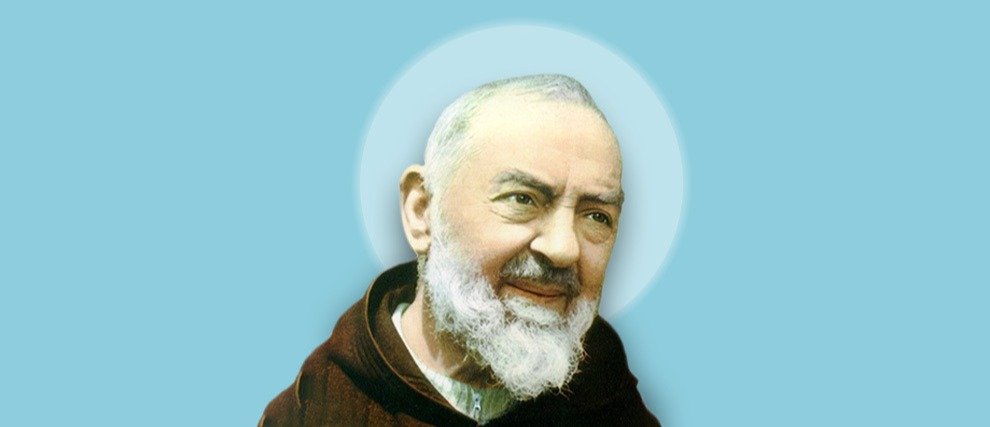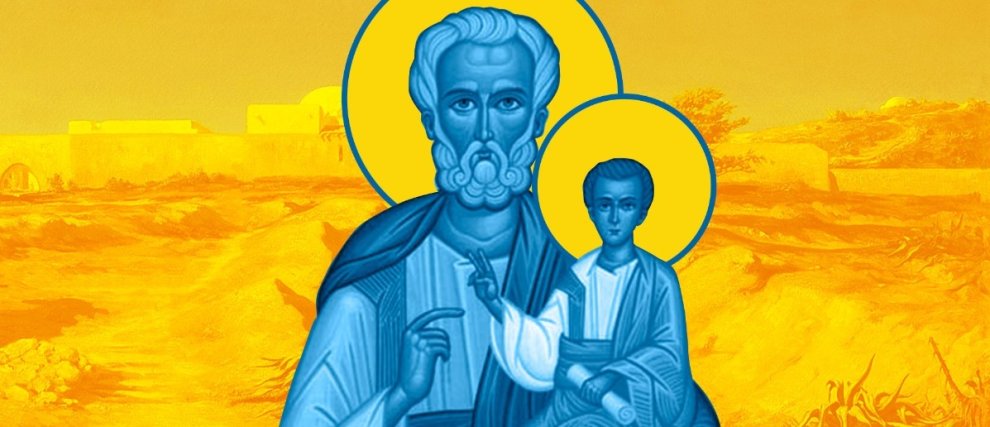Saint Cyril of Jerusalem
“It is up to God to give grace, it is up to you to receive it and to keep it!”
The origins of Cyril of Jerusalem are little known. He was born two years after the Edict of Milan, which put an end to Christian persecution. However, it is from within that the Church would henceforth be torn apart, by the multiple heretical currents in the first centuries of Christianity. Cyril would also pay the costs, after being ordained bishop in 350, being caught in the huge political-theological turmoil that raged in the East and the West, and a victim of the Arian crisis. Listed among the fathers of the Church, he developed a catechesis for catechumens that became famous and earned him the title of Doctor of the Church.
Biography of Cyril of Jerusalem
Little is known about his origins. He was probably born to a wealthy family, which gave him a good literary and Christian education, in 315. This is undoubtedly what gives him the taste for and the calling to Christ. He was ordained a priest by the bishop of Jerusalem, Maximus, around 345. After the Edict of Milan of 313 by the emperor Constantine, authorizing Christian worship following centuries of persecution, the Church was in full triumph. In Jerusalem, many religious buildings were built thanks to the generosity of the emperor, and pilgrims began to flow to the holy city.
The Church is doing well from one point of view, but the prelates clashed and tore each other apart on questions of doctrine, mainly on the divine and/or human nature of the son and consubstantiality. This was called the “Arian crisis”. This was mixed with political struggles because the number of Christians was skyrocketing, and they became a power issue. It was in this context that Cyril was appointed bishop, in 349, upon the death of Bishop Maximus, although doubts remained about the identity of his appointor(s) and the conditions of his accession to the episcopate. However, the position of bishop of Jerusalem being so coveted in the midst of his quarrels, he was soon disapproved of by prelates who supported Arianism. Without necessarily taking one side or the other in the quarrels of theorists, Cyril strove to lead a pious life and a search for truth by maintaining the firmness of his belief in the trinitarian doctrine and in the divinity of Christ, son of God and savior. This was confirmed by the Council of Constantinople in 381.
Cyril had an enemy in Palestine, Acacia of Caesarea, who became a bishop following Eusebius of Caesarea. This Arian bishop wanted to make Cyril his vassal, and quarrels of person and doctrine gradually crystallized between the two men of God. Cyril was finally deposed in 357. He then took refuge in Antioch, then in Tarsus. After a council in Seleucia in 359, he temporarily recovered his episcopate, before being again deposed by a council in Constantinople in 360. After two years of exile, he returned to Jerusalem, but was exiled again by the emperor Valens, fiercely Arian. It was when Theodosius I came to power that Cyril definitively regained his episcopate.
A council was organized in Constantinople in 381. It finally recognized him as the legitimate bishop of Jerusalem. He thus ensured the governance of his church in peace until his death in 387.
Cyril of Jerusalem is mainly known for his catecheses for catechumens and neophytes. It is a set of 24 homilies, the first 18 of which are for baptismal candidates, while the other 6 (mystagogical catecheses) are for the newly baptized to ensure their initiation into the mysteries and the sacraments. In his doctrine, he presents no originality, either in form or in substance. However, it was by the simplicity of his writings, his desire to make known and practice an Orthodox faith based on the Gospels, and above all, by his exemplary life of piety and fidelity to Christ, that he was recognized as a doctor of the Church in 1883 by Leo XIII.
In a June 2007 audience, Benedict XVI considered Cyril of Jerusalem to be “a bishop of great biblical culture”. [...] The work of Saint Cyril constitutes a systematic and realistic catechesis, dedicated to the rebirth of the Christian by baptism.” He adds that his work invites “an integral catechesis, which involves the body, the soul and the spirit, which remains fundamental for today's Christians.”
Works by Cyril of Jerusalem
- 18 baptismal catecheses,
- 6 mystagogical catecheses
- A letter to the emperor Constance, in which he recounts the appearance of a luminous cross in heaven; an event narrated by other witnesses, dated 351.
Quotation by Cyril of Jerusalem
- “Know that you have a free soul, a masterpiece of God, for it is in the image of its creator; immortal, because God has given it immortality. She is alive, endowed with reason, incorruptible, and this thanks to God who has granted her favors.” If there is anyone here who is a slave to sin, let him prepare, by means of the baptismal faith, for the new Birth which will make him a free man, one of the children of adoption. Let him abandon the lamentable slavery of his sins to acquire the blessed slavery of the Lord: this is how he will be deemed worthy to inherit the Kingdom of heaven. Put off by confession the old man, corrupted by the desires that lead him astray, in order to put on the new man, the one who is renewed according to the image of his Creator. Obtain by the sacrament of faith the first gifts of the Holy Spirit so that you can be received in eternal homes. Approach the sacrament that will mark you so that you become familiar with the Master. Agree with the holy flock of Christ's reasonable sheep to one day be placed at his right hand and receive as an inheritance the life that has been prepared for you. “For the enemies of the cross, fear will be the sign; but joy for his friends who have believed in it or have preached it or have suffered for it. Who will then have the happiness of being found the friend of Christ? He will not disdain his servants, this glorious king who is surrounded by the guard of angels and who sits on the same throne as the Father. For so that the chosen ones will not be confused with the enemies, “and he will send his angels with a loud trumpet call, and they will gather his elect from the four winds, from one end of the heavens to the other.” (Mathew 24:31).
- He did not forget Lot in his isolation (Genesis 19:15; Luke 17:28); how would he forget the crowd of the just? “Come, the blessed of my Father” (Matthew 25:34), he will say to those who will be transported on the chariots of the clouds and whom the angels will have gathered.”
Develop your knowledge of the Bible with Hozana
Following in the footsteps of Cyril of Jerusalem, who worked for peace between the Churches and the orthodoxy of the faith, let us pray for its success today.
Let us pray to to find a path to Christ.
Hozana offers you many elements to help you to be more contemplative, such as:

